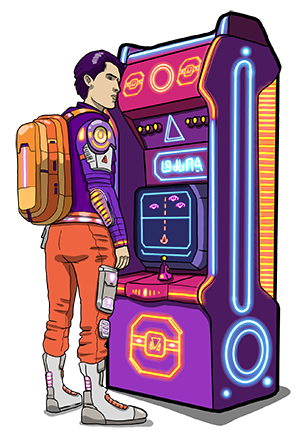Throughout the intricate process of game development, proactive culturalization serves as a vital refinement tool for creators who want to provide a truly immersive playing experience for audiences worldwide. This advanced approach to diverse-player engagement not only involves the successful adaptation of existing content; it also involves the active shaping of a game, from its earliest conceptual stages, to ensure its ultimate cultural inclusivity, authenticity, and appeal across global markets.
What is Proactive Culturalization?

The process of proactive culturalization goes beyond reactive fixes or neutral adjustments to a game. On a more profound and holistic level, proactive culturalization emphasizes the integration of cultural sensitivity and awareness into the core development process. By considering cultural nuances at the earliest stages of a game’s creation, developers can avoid potentially insensitive missteps and instead provide content that naturally aligns with the values and expectations of various target audiences.
The approach requires collaboration among localization experts, cultural consultants, developers, and marketing teams. Together, they ensure the game’s design, narrative, and mechanics are inclusive and authentic from the beginning.
How Proactive Culturalization Works
There isn’t a one-size-fits-all approach to proactive culturalization. It’s a tailored process that begins long before traditional localization takes place and involves embedding cultural insights into the entire game development cycle. It includes:
- Early Consultation with Cultural Experts. Developers and cultural consultants collaborate from the game’s conceptual phase. These experts assess the cultural dynamics of target markets and advise on themes, character designs, and storylines that could resonate positively—or raise red flags—with players. For instance, in a game with mythological themes, consultants might suggest how to represent cultural deities respectfully, or adapt myths in ways that suit diverse audiences.
- Culturally Informed Asset Creation. Art, voiceover scripts, and in-game text are designed with cultural relevance in mind. This could mean adjusting characters’ appearances, refining dialogue to reflect regional speech patterns, or even rethinking gameplay mechanics to avoid potential cultural missteps.

- Iterative Reviewing Process. Proactive culturalization isn’t static. Throughout a game’s development, its assets are reviewed to ensure they align with both the developers’ creative vision and the cultural expectations of target audiences. This iterative process allows for feedback loops that refine the game in real time.
- Global Testing with Local Audiences. Before the game’s release, developers conduct playtests in key markets to identify potential issues. Feedback from these sessions can highlight game elements that either resonate well or fall flat, thereby providing developers the opportunity for last-minute adjustments.
- Proactive Monitoring of Cultural Reception. Proactive culturalization doesn’t end after a game launches. Post-release, developers continue to track feedback from global audiences and implement updates to address any culture-related issues or to enhance the player experience in other ways if needed.
Why Proactive Culturalization Matters
Proactive culturalization enhances a game’s chance of success on many levels. One of its most powerful effects can be observed in the sense of belonging that it fosters among players. When audiences see themselves reflected authentically in a game’s content, they feel both valued and at home with their gameplay experience.
This dynamic approach to culturalization allows players to establish stronger emotional connections to the game—and thus, greater loyalty to it, too—than they could have formed if cultural authenticity weren’t a factor. In this way, proactive culturalization also reduces the risk of alienating players through cultural missteps, and reduces the need for reactive fixes post-launch.

The Takeaway
As the global gaming industry continues to expand, proactive culturalization is emerging as a cornerstone of thoughtful innovation, inclusivity, and strategic thinking in game development. By integrating cultural insights into a game’s evolution from the start, developers can craft experiences that transcend borders; celebrate the diversity of their players; and build meaningful connections worldwide.



